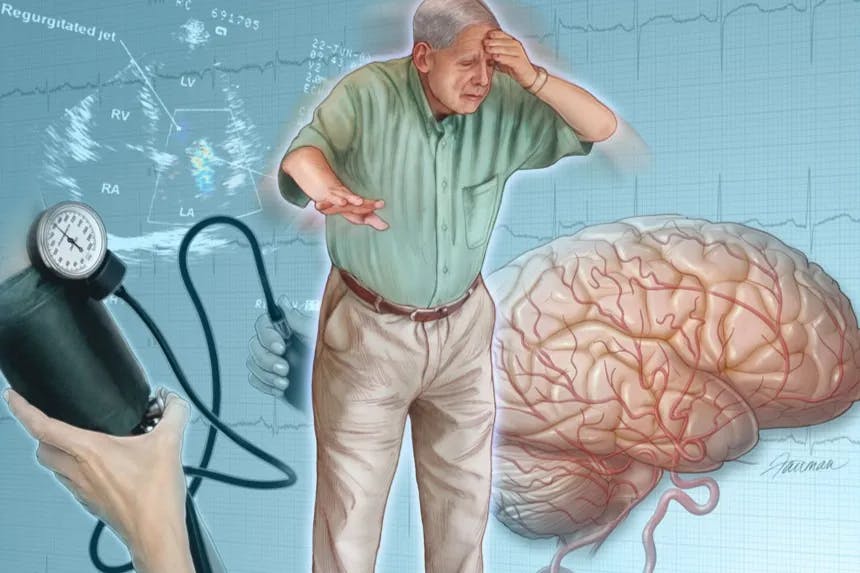.97077bf4.webp&w=640&q=75)
Syncope

Syncope, also known as fainting, is a common and potentially serious medical condition that affects millions of people each year. It is characterized by a sudden loss of consciousness and muscle strength, which can cause a person to fall and potentially injure themselves.At our neurology clinic, we are experts in diagnosing and treating syncope. We use state-of-the-art technology and cutting-edge techniques to determine the underlying cause of your fainting spells and develop a personalized treatment plan to help you feel better and prevent future episodes.If you are experiencing syncope, it is important to seek medical attention as soon as possible. Our at-home and telehealth services make it easy for you to access expert care from the comfort of your own home, without the need for long travel or waiting times.Book an appointment with us today to learn more about syncope and how we can help you manage your symptoms and feel better. Together, we can work towards a brighter and healthier future.
Frequently Asked Questions
What is Syncope?
Syncope is a sudden and temporary loss of consciousness caused by a decrease in blood flow to the brain. This can happen for a variety of reasons, including low blood pressure, heart problems, or other underlying medical conditions.
What are the symptoms of Syncope?
The most common symptom of syncope is a sudden and temporary loss of consciousness, often accompanied by dizziness, lightheadedness, or weakness.
Other symptoms may include fainting, confusion, slurred speech, blurred vision, or loss of muscle tone.
How do I know if I have Syncope?
If you have experienced a sudden and temporary loss of consciousness, it is important to see a healthcare provider for evaluation. Your healthcare provider will conduct a thorough physical exam and may order additional tests, such as an electrocardiogram (ECG) or electroencephalogram (EEG), to determine the cause of your syncope.
What are the most common treatments for Syncope?
The treatment for syncope will depend on the underlying cause.
In some cases, medications may be prescribed to regulate heart rhythm or blood pressure.
Other treatments may include lifestyle changes, such as avoiding dehydration or standing for long periods of time, or surgical procedures to repair underlying heart conditions.
What should I do if I experience Syncope?
If you experience syncope, it is important to seek medical evaluation and treatment. Your healthcare provider will conduct a thorough physical exam and may order additional tests to determine the cause of your syncope. Follow your healthcare provider’s recommendations for treatment and lifestyle changes to prevent future episodes of syncope.
What are the potential complications of Syncope?
If left untreated, syncope can lead to falls and injuries, particularly in older adults. Syncope can also be a sign of a more serious underlying medical condition, such as heart disease or epilepsy, so it is important to seek medical evaluation and treatment.
What are the risk factors for Syncope?
Risk factors for syncope include older age, dehydration, standing for long periods of time, certain medications, and underlying medical conditions such as heart disease or low blood pressure.
What are the long-term effects of Syncope?
The long-term effects of syncope will depend on the underlying cause and how it is treated.
In some cases, syncope may resolve with treatment and not cause any long-term effects.
However, if left untreated, syncope can lead to falls and injuries, as well as potential complications from underlying medical conditions.
What are the potential triggers for Syncope?
Potential triggers for syncope include standing for long periods of time, dehydration, certain medications, and underlying medical conditions.
How can I prevent Syncope?
To prevent syncope, it is important to maintain a healthy lifestyle, including staying hydrated, avoiding standing for long periods of time, and managing underlying medical conditions. It is also important to avoid certain medications that may trigger syncope.